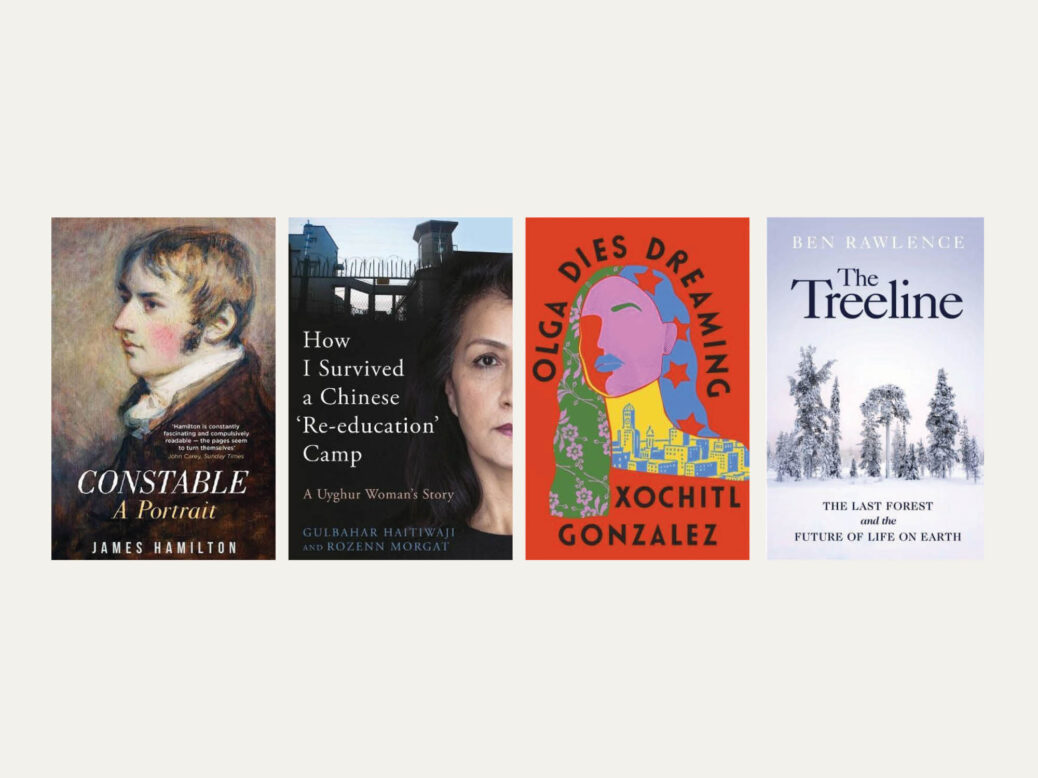
Constable: A Portrait by James Hamilton
Weidenfeld & Nicolson, 496pp, £25
In 1821 John Constable lamented, with good reason, that, “I now fear I shall never be a popular artist.” His great work The Hay Wain had just been exhibited at the Royal Academy’s annual exhibition but had failed to sell; he was 45, a painter of more than 20 years’ experience but still had another seven years to wait before he became a Royal Academician; he had a wife who would shortly contract tuberculosis and “my children begin to swarm”. One of the many merits of James Hamilton’s estimable biography of the painter is to show Constable’s long struggle towards acceptance and his insistence, against the evidence, that “there is room enough for a natural painture”.
As the biographer of Gainsborough and Turner, Hamilton is a practised hand when it comes to 18th- and 19th-century British art, and it shows. He moves deftly between Constable’s personal and professional life and the network of relations and patrons that kept him afloat, and he is just as attuned to the radical aspects of Constable’s art. In his pictures, as Hamilton shows, nature does not decorously stand still but becomes a pulsating, living entity.
By Michael Prodger
Olga Dies Dreaming by Xochitl Gonzalez
Fleet, 384pp, £16.99
On the surface, the Acevedo siblings are overachievers. Olga, a wedding planner for rich Manhattanites, is driven, independent, but closed off to love; Prieto, a congressman, is hailed as the Latino Obama, but struggles privately as a closeted gay man. Their father was a drug addict who died of Aids, their mother a Puerto Rican revolutionary who abandoned them for the cause. The mystery of mami hangs over the novel: where is she? What’s she plotting?
Xochitl Gonzalez likes big issues – identity, colonialism, the American dream – which she projects on to a well-drawn sociopolitical backdrop: gentrification in Brooklyn and, after Hurricane Maria hits in 2017, devastation in Puerto Rico. The prose of her debut novel is chatty and occasionally sloppy, with unimaginative similes (“the weather was as gloomy as the news”). A Hulu TV pilot is in development and will no doubt capture the novel’s romcom feel, which has something of the soap about it too (the daisy chain of conveniently interconnected characters, the piling on of trauma). This is intriguing fiction with a compelling cast – not revolutionary, but ready-made for the screen.
By Katherine Cowles
The Treeline: The Last Forest and the Future of Life on Earth by Ben Rawlence
Vintage, 352pp, £20
There is a coldly utilitarian term in conservation circles known as the “extinction escalator”. It describes the process by which warming temperatures push species up mountainsides in search of their required equilibrium until there is nowhere left for them to run. The phenomenon is disturbing when applied to any one location, but gains new terror when viewed from the vantage point of the world’s boreal forests: vast stretches of trees that encircle the polar region from Norway to Siberia, Alaska to Greenland, and that are moving north with increasing pace.
In travelling this retreating tree-line, the former war reporter Ben Rawlence presents a rare portrait of the climate crisis that is both intimate and globe-spanning. The scientists, conservationists, herders and indigenous peoples he meets along the way are immersed in a lichen-covered, meaning-laden world that is disappearing too fast for us to stop or even fully understand it. Rich with history, wonder and empathy, Rawlence’s book, like the forests he walks, encapsulates our precious, precarious present. This revolution begins in the woods.
By India Bourke
How I Survived a Chinese “Re-education” Camp by Gulbahar Haitiwaji and Rozenn Morgat, translated by Edward Gauvin
Canbury Press, 256pp, £18.99
The details of Gulbahar Haitiwaji’s memoir – billed as the only one by a survivor of China’s Uyghur “re-education” camps – are harrowing. A 50-something mother of two who left Xinjiang for France in 2006, Haitiwaji is lured back to China in 2017 to sign documents to collect her pension. Once she lands she is stripped of her passport, detained and sent to “school” – an internment compound. There she is subjected to 11-hour days of marching and reciting refrains about the Chinese Communist Party. She suffers interrogations, is chained to her bed and denied contact with her family.
But books aren’t made up of details alone. The sentences in this book are distractingly clunky and cliché-ridden (“shivers” run down spines; eyes “gleam”). The narrative confusingly leaps back and forth in time. Ultimately, the reader comes away feeling that Gulbahar Haitiwaji – who was freed after nearly three years in detention, thanks to diplomatic intervention from France – was let down by her co-writer, the French journalist Rozenn Morgat.
By Megan Gibson
[see also: What to read in 2022: non-fiction]
This article appears in the 02 Feb 2022 issue of the New Statesman, Going Under






